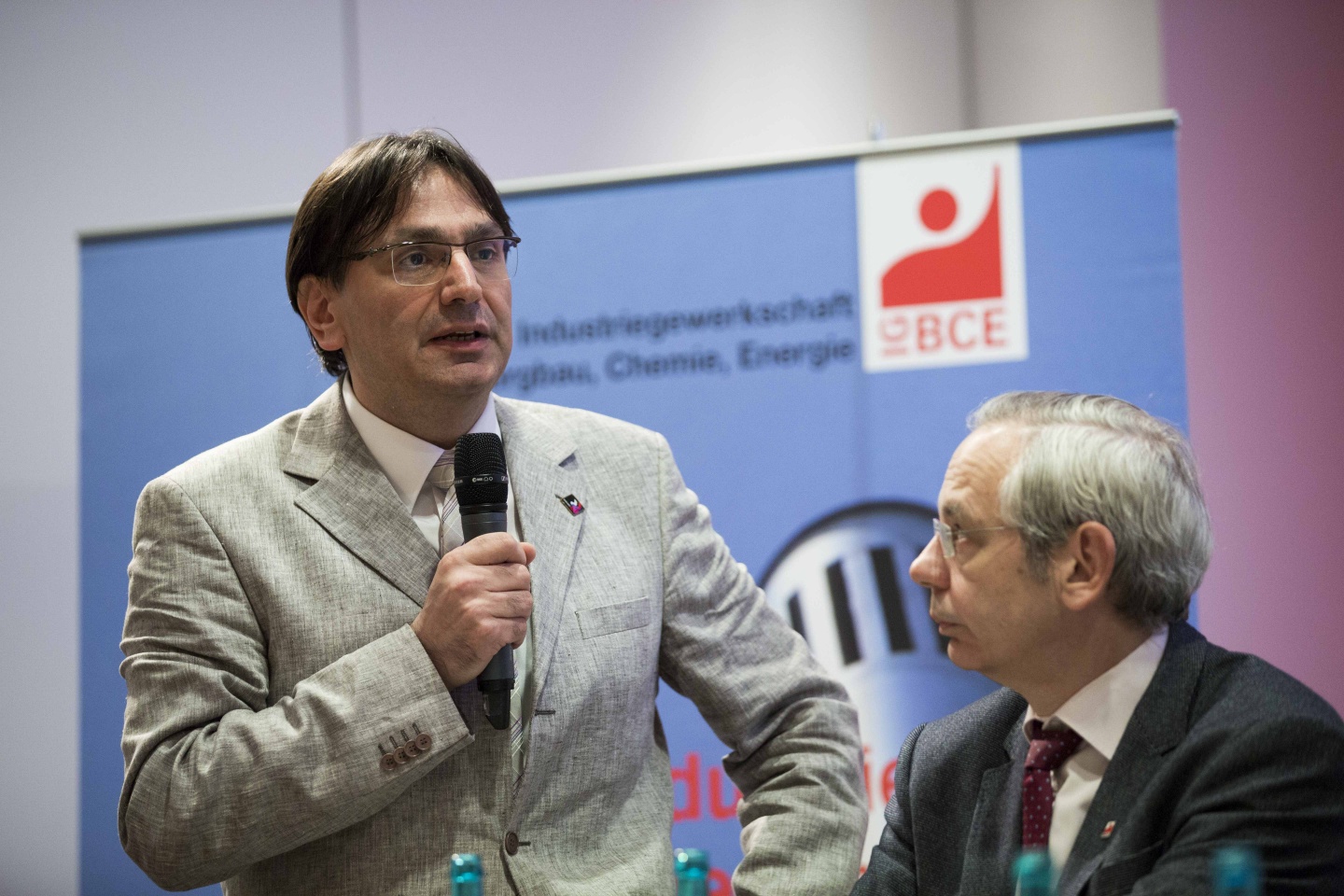31 July, 2015Leading officials of IndustriALL Global Union’s German affiliate IG BCE (Mining, Chemical and Energy Workers’ Union) analyze labour relations in China through an Industry Forum.
China is by far the largest chemical producer in the world, and many German chemical multinational companies have large investments in the country. A total of 189 subsidiaries of German chemical companies operate in China. Together they achieve a turnover of around 17.4 billion euros and employ 52,000 people. At the same time, Chinese companies are increasingly investing in companies in Germany and Europe.
Around 60 participants evaluated developments on labour relations in China and possible cooperation and partnership with their Chinese counterparts. The main expectation raised by the IG BCE’s Industry Forum was that worldwide workers need to stand together and competition by the companies must not be done at the expense of working conditions, safety and wages.
"Companies’ social responsibility is not limited to Germany. Good work needs respect, fairness and trust," said Michael Vassiliadis, President of IG BCE. "We need to build a Competence-Team to help our friends there."
Although the Chinese government has carried out reforms in the field of labour law and the establishment of the Employment Contracts Act, Employment Promotion Act and the labor dispute law, the way to a more efficient and fair labour market is still long and arduous.
The central government’s predetermined legal framework can be interpreted and applied flexibly to the respective region by the local administration, making it difficult to effectively enforce and demand the regulations and laws.
Another fundamental problem is the restriction of forming independent trade unions. Each localized and newly formed union has to join the All-China Federation of Trade Unions (ACFTU) to be considered legitimate.
The participants received reports that multinational companies such as Bayer and Evonik implement the German labour relations model at their plants located in China. This includes elections for workers' representatives and negotiated collective bargaining agreements. The reports showed that support given by German works council members helped creation of common understanding and a joint working culture at workplaces.
Oliver Zühlke, Chairperson of the General Works Council of Bayer AG, reported on the status of participation in Bayer’s factories in China. He said 96 per cent of employees were organized and workers representatives were elected at the Chinese factories of Bayer. However, labour relations are not only working for exchanging technical and organizational information, but also sharing concerns such as investment slowdown or economic migration.
"You can speak up to ensure that the same standards are applied to all employees of the same multinational company. Settling good labour relations in China also helps workers in Germany. Competition should not take place at the expense of labour costs. We want a system whereby all employees can exercise their fundamental rights," said Kemal Özkan, Assistant General Secretary of IndustriALL Global Union in an interview at the Industry Forum.
